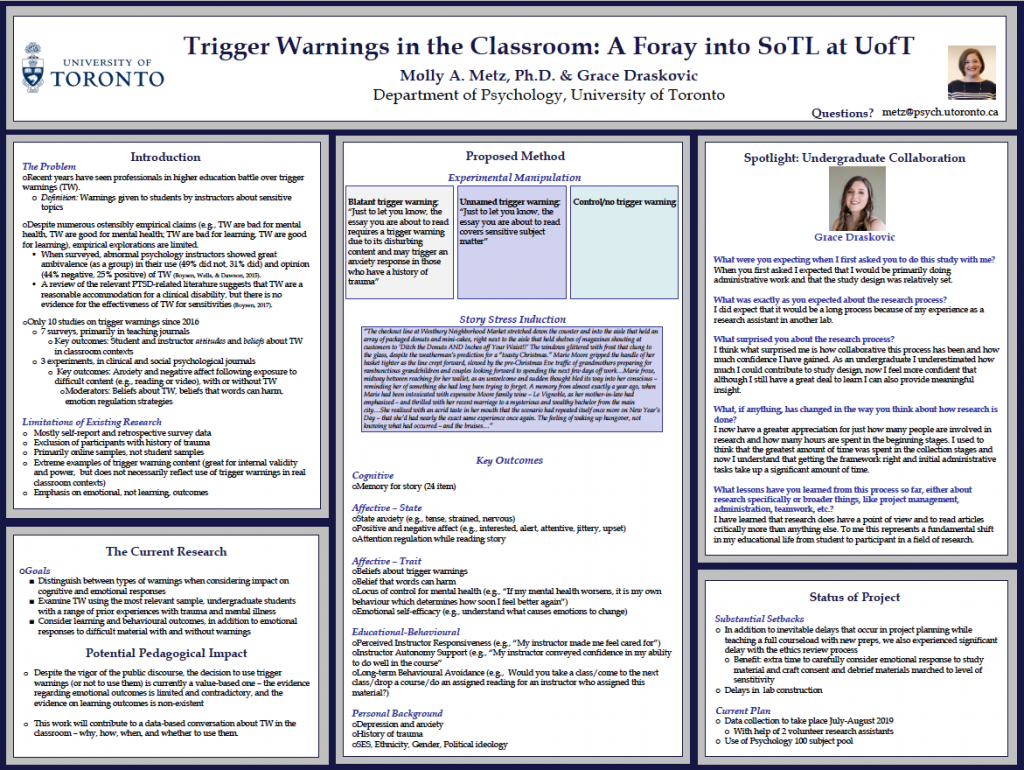Molly Metz

Assistant Professor, Teaching Stream, Psychology, Faculty of Arts & Science
Title: Trigger Warnings in the Classroom: Autonomy Concerns as Predictor and Outcome
Research Focus: Recent years have seen professionals in higher education battle over trigger warnings (TW), typically depicted as warnings given to students by instructors about sensitive topics. Public discourse surrounding the issue tends to focus on the effect of TW on student mental health, academic freedom, and learning; however, there is little agreement about how to accomplish these goals, how TW fit into the equation, and strikingly, what even qualifies as a TW. Empirical investigations into the topic are few, with just nine papers published in the last three years, only two of which are experimental. The present study is designed to address two key limitations of the existing work: first, to distinguish amongst different types of TW when considering the impact on student learning and experiences; and second, to examine TW using the most relevant sample, undergraduate students with a range of prior experiences with trauma and mental illness.
Study Design: In a lab setting, participants recruited from the Psychology Department subject pool will be randomly assigned to receive one of three different warnings before reading a passage about a potentially stressful topic. They will then complete validated self-report measures of anxiety and attention regulation as well as a reading comprehension test for the assigned passage. In addition to these dependent measures, participants will also report on mental health history, beliefs about TW, locus of control, perceptions on a hypothetical course and instructor in which they might face such a warning, and a range of demographic items. With these measures, we will be able to analyze how students respond cognitively and emotionally to different types of warnings, how they shape perceptions of instructors and courses, and how these responses might vary based on personal histories of students.
Impact: Although the decision to use TW is largely a value-based one, this research has the potential to inform interested instructors of the most beneficial ways to employ warnings, and to respond to the concerns of skeptical instructors of the extent of the possible negative consequences.
SoTL Cohort Poster presented at the 2019 Teaching and Learning Symposium
